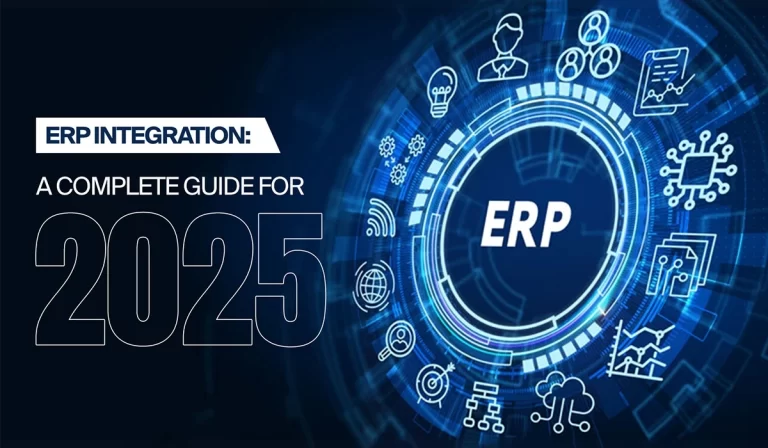AI-Powered Search Evolution in 2025
Introduction
The search landscape has undergone a dramatic transformation in 2025, marking a pivotal year in how we discover, process, and interact with information. What began as simple keyword-based queries has evolved into sophisticated conversational exchanges with artificial intelligence systems that understand context, intent, and nuance. This evolution represents more than just technological advancement; it signifies a fundamental shift in the relationship between humans and information access.
The integration of large language models into search engines has created an entirely new paradigm where users can engage in natural dialogue rather than relying on carefully crafted search terms. This change has democratized information access, making complex research tasks accessible to users regardless of their technical expertise or familiarity with traditional search optimization techniques.

The Current Landscape of AI Search
Traditional search engines that dominated the early internet era have rapidly adapted to incorporate artificial intelligence at their core. The year 2025 has witnessed major platforms integrating conversational AI directly into their search interfaces, fundamentally altering user expectations and behaviors. Users no longer need to think like search algorithms; instead, algorithms have learned to think like humans.
This transformation extends beyond consumer applications into professional environments, where knowledge workers increasingly rely on AI-powered search tools to navigate vast databases of corporate information, research papers, and specialized documentation. The efficiency gains are measurable, with many organizations reporting significant improvements in information retrieval speed and accuracy.
The competitive landscape has also shifted dramatically, with new players entering the market specifically focused on AI-first search experiences. These platforms challenge established giants by offering more intuitive interfaces and specialized capabilities tailored to specific user needs and industries.
Conversational Search Interfaces
Perhaps the most visible change in search behavior during 2025 has been the mainstream adoption of conversational interfaces. Users now expect to engage with search systems through natural language, asking follow-up questions and refining their queries through dialogue rather than starting fresh with new keyword combinations.
These conversational systems excel at understanding context from previous interactions, maintaining thread continuity that allows for complex, multi-part research sessions. A user might begin by asking about climate change impacts, then naturally progress to discussing specific regional effects, mitigation strategies, and policy implications without needing to reestablish context with each query.
The sophistication of these systems has reached a point where they can handle ambiguous language, interpret implied meanings, and even suggest relevant follow-up questions that users might not have considered. This proactive approach to information discovery has proven particularly valuable in educational and research contexts.
Multimodal Search Capabilities
The boundaries between different types of content have blurred significantly in 2025, with AI search systems seamlessly processing and correlating information across text, images, audio, and video formats. Users can now upload a photograph and ask detailed questions about its content, search for similar images using natural language descriptions, or even find videos that demonstrate concepts mentioned in text-based queries.
Voice search has matured beyond simple command recognition to support complex conversational queries. Users can now engage in lengthy discussions with search systems using only voice input, making hands-free research and information gathering practical for professional use cases.
Visual search capabilities have expanded to include real-world object recognition through smartphone cameras, enabling users to identify plants, landmarks, products, or architectural features simply by pointing their device and asking questions. This functionality has proven particularly valuable for educational applications and accessibility support.
Personalization and Context Awareness
Modern AI search systems have developed sophisticated understanding of individual user preferences, expertise levels, and contextual needs. Rather than delivering identical results to all users, these systems tailor responses based on professional background, previous interactions, and inferred interests while maintaining privacy boundaries.
The personalization extends to communication style, with systems adapting their explanation complexity and terminology to match user expertise. Technical professionals receive detailed, jargon-rich responses, while general audiences get simplified explanations with helpful analogies and examples.
Context awareness has evolved beyond simple user profiling to include temporal, geographical, and situational factors. Search results now consider current events, local relevance, and even the time of day when providing recommendations or information priorities.
Real-Time Information Processing
One of the most significant advances in 2025 has been the ability of AI search systems to process and integrate real-time information streams. Unlike traditional search engines that relied on periodic crawling and indexing, modern systems can incorporate breaking news, social media trends, and live data feeds into their responses within minutes of publication.
This capability has proven invaluable for professionals who need current information for decision-making, researchers tracking developing stories, and anyone seeking the most up-to-date perspective on rapidly evolving topics. The systems can distinguish between established facts and emerging developments, clearly indicating the reliability and recency of different information sources.
Financial markets, weather systems, and social trends can now be analyzed and explained in real-time through conversational interfaces, making complex data interpretation accessible to non-specialists while maintaining the depth required by expert users.
Enterprise and Specialized Applications
Corporate adoption of AI-powered search has accelerated throughout 2025, with organizations deploying specialized systems for internal knowledge management, customer support, and professional research. These enterprise solutions offer security controls and customization options that address specific industry needs while maintaining the conversational ease-of-use that users have come to expect.
Legal professionals now use AI search tools to quickly locate relevant case law and regulatory guidance, while medical practitioners access the latest research findings and treatment protocols through natural language queries. These specialized applications demonstrate how AI search can be fine-tuned for professional domains without sacrificing general usability.
Educational institutions have embraced AI search as a teaching tool, helping students develop research skills while providing instant access to verified academic sources. The ability to explain complex concepts at appropriate grade levels has made these tools valuable supplements to traditional educational resources.
Privacy and Ethical Considerations
The power of AI search systems has raised important questions about privacy, data usage, and information access equity. Users increasingly demand transparency about how their queries are processed, what data is retained, and how personalization algorithms make decisions about information relevance.
Efforts to address these concerns have led to the development of privacy-preserving search options that provide personalized results without extensive data collection. Some platforms now offer “private mode” searches that don’t contribute to user profiles while still delivering high-quality results.
The question of information bias has become more complex as AI systems learn from vast datasets that may contain historical prejudices or incomplete perspectives. Ongoing research focuses on developing methods to identify and mitigate these biases while maintaining the accuracy and usefulness of search results.
Challenges and Limitations
Despite remarkable progress, AI-powered search still faces significant challenges in 2025. The systems occasionally generate confident-sounding responses based on incomplete or inaccurate information, requiring users to develop new critical thinking skills for evaluating AI-generated content.
Computational requirements for running sophisticated AI search systems remain substantial, raising questions about environmental impact and accessibility for smaller organizations or developing regions. The concentration of AI capabilities among well-funded technology companies has created concerns about information access inequality.
Technical limitations persist in handling highly specialized or rapidly changing domains where training data may be insufficient or outdated. Users must still understand when to seek human expert consultation rather than relying solely on AI systems.
Future Outlook
Looking beyond 2025, the trajectory of AI search evolution points toward even more seamless integration with daily workflows and decision-making processes. Emerging technologies suggest future systems will offer predictive information delivery, anticipating user needs based on patterns and contexts.
The integration of AI search with other productivity tools promises to create unified knowledge environments where information discovery, analysis, and application become part of a single workflow. This integration may fundamentally change how knowledge work is performed across industries.
Research into more efficient AI architectures and training methods offers hope for addressing current limitations around computational requirements and bias, potentially democratizing access to advanced search capabilities globally.
Conclusion
The evolution of AI-powered search in 2025 represents a watershed moment in information access technology. The shift from keyword-based searching to conversational information discovery has made complex research capabilities available to anyone who can ask questions in natural language.
This transformation extends far beyond technological novelty to address fundamental challenges in how humans interact with the growing volume of available information. By making search more intuitive and contextually aware, AI systems have removed traditional barriers between users and knowledge.
As we continue to navigate this new landscape, the focus must remain on developing systems that enhance human capability rather than replace human judgment. The most successful AI search implementations in 2025 have been those that amplify human intelligence while respecting user autonomy and privacy.
The future of search lies not in replacing human curiosity and critical thinking but in providing tools that make information exploration more efficient, comprehensive, and accessible to all users regardless of their technical background or resources.




